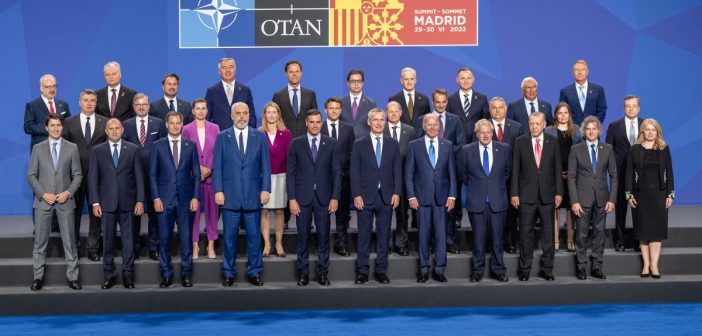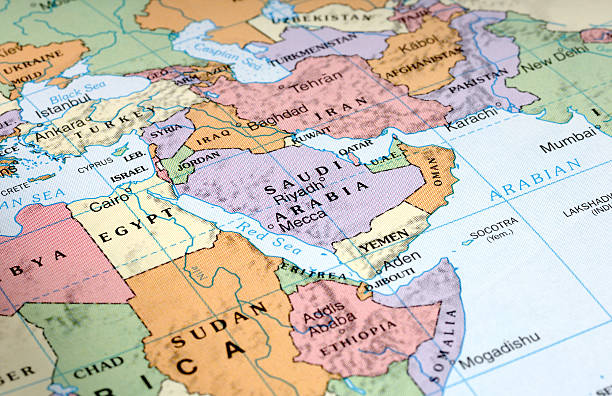G7 met in Elmau, Germany, on 26-28 June 2022. The communiqué issued following the meeting stressed G7’s condemnation of Russia’s war of aggression against Ukraine and reiterated that G7 will stand with Ukraine for as long as it takes.
The communiqué expressed concern about the situation in the East and South China Seas and strong opposition to any unilateral attempts to change the status quo by force or coercion that increased tensions. It said there is no legal basis for China’s expansive maritime claims in the South China Sea. It underscored the importance of peace and stability across the Taiwan Strait and encouraged a peaceful resolution of cross-Strait issues.
It also said that through their Partnership for Global Infrastructure and Investment, the G7 countries aim to mobilize USD 600 billion over the next five years to narrow the global investment gap, a move widely seen as a step to counter China’s Belt and Road project and growing presence in Africa.
In June last year, President Biden had arrived in Brussels having mustered enough support from the G7 summit on Russia and China. His principal task at the NATO summit was to put the four troubling years with President Trump behind and rally NATO support in the strategic competition with Russia and China. Last Tuesday he arrived in Madrid again having mustered enough support from the G7 summit on Russia and China, but in a dramatically changed European landscape and an increasingly heavy agenda back home.
Fortunately for the public, the 22-paragraph Madrid Declaration of July 29 is a more concise and readable text than the 79-paragraph Brussels Summit Communiqué of the last year.[i] The paragraphs dealing with Russia and the war in Ukraine are a strongly worded summary of what has already been said by Western leaders during the past four months. They define Russia as the most significant and direct threat to the allies’ security and peace and stability in the Euro-Atlantic area.
The Declaration also says that allies face systemic competition from those, including China, who challenge allied interests, security, and values and seek to undermine the rules-based international order. It then mentions the measures envisaged to significantly strengthen NATO’s deterrence and defense for the long term to ensure the security and defense of all Allies. On his way to the summit, President Biden had already unveiled an enhanced US posture in Europe, announcing that the NATO alliance would be “ready for threats in all directions.” The newly adopted NATO 2022 Strategic Concept also dwells upon the challenges posed by China and says, “The deepening strategic partnership between the People’s Republic of China and the Russian Federation and their mutually reinforcing attempts to undercut the rules-based international order.”
Last Friday, probably also in anticipation of what was to be said by the G7 and NATO countries at the two summits, President Xi Jinping made a two-day visit to Hong Kong marking the 25th anniversary of the city’s return to Chinese rule.
What particularly attracted my attention during the past week was firstly a Foreign Affairs article titled “NATO’s Hard Road Ahead” by Charles A. Kupchan. [ii] He said:
“But despite its clean bill of health and demonstrable unity, NATO faces a thicket of thorny issues, and discussions in Madrid will only just begin to address them. The war in Ukraine will, of course, dominate the summit. The conversation is poised to focus on the easy part: getting more arms to the frontlines. But NATO also needs to take up the hard part: when and how to marry the flow of weapons to a diplomatic strategy… The transatlantic effort to support Ukraine has focused on providing the country the weapons it needs to defend itself… But it is time for NATO to focus on a diplomatic endgame and capitalize on its successful effort to strengthen Ukraine’s hand by facilitating a cease-fire and follow-on negotiations…”
Professor Kupchan then drew attention to the negative impact of the war in Ukraine on energy costs, and food security and said that food shortages in Africa exacerbated by the war could trigger a humanitarian crisis and confront Europeans with yet another influx of desperate migrants.
UN Secretary-General Guterres, who spoke to the Guardian at the UN ocean conference, said his biggest concern was how global problems were widening the gap between rich and poor.
Secondly, I thought that New Zealand Prime Minister Jacinda Ardern’s remarks warning of a “more assertive” China but urging more diplomatic engagement were most worthy of attention. [iii]
After briefly mentioning what New Zealand has been doing to help the people of Ukraine, she said:
“In all of this, we stand alongside those who share our same values. And here I want to acknowledge the leadership shown by NATO.
“But I also come with a request: that we do not allow the legacy of the war in Ukraine to become an arms race, or an even more polarized and dangerous world.
“Our solidarity with Ukraine must be matched by an equal commitment to strengthen international institutions, multilateral forums, and disarmament.”
And after underlining the importance of nuclear non-proliferation she added:
“Separately China has in recent times also become more assertive and more willing to challenge international rules and norms. Here, we must respond to the actions we see. We must stand firm on the rules-based order, call for diplomatic engagement and speak out against human rights abuses at all times when and where we see them. But we also must resist the temptation to simplify the increasingly complex world in which we live. We must use diplomacy at every opportunity, until it has proven to fail…”
Three years ago, having seen her handling of the Christchurch tragedy, I had said that she would be my candidate in the next race for the UN Secretary-General. She still is.
Türkiye withdrawing its objection to Finland’s and Sweden’s NATO membership was a comforting development for NATO allies, at least for now. Last Thursday, in remarks to the press in Madrid, President Erdoğan described the signing of the Trilateral Memorandum as an achievement reached through dialogue but called it “a great diplomatic victory for Türkiye” nonetheless.
With reference to the invitation extended to Finland and Sweden to become members of NATO, the Madrid Declaration says, “In any accession to the Alliance, it is of vital importance that the legitimate security concerns of all Allies are properly addressed.” Since such texts are mostly negotiated before high-level meetings, this must have been a sweetener offered to Turkey.
At first glance, the Trilateral Memorandum meets Turkey’s concerns.[iv] But this is not a treaty.
According to the “Treaties and Memoranda of Understanding (MOUs) Guidance on Practice and Procedures” of the Treaty Section, Legal Directorate of the UK Foreign, Commonwealth and Development Office,
“A Memorandum of Understanding (MoU) records international commitments, but in a form and with wording which expresses an intention that it is not to be binding as a matter of international law. An MoU is used where it is considered preferable to avoid the formalities of a treaty… The key difference between MoUs and treaties is whether or not there is an intention to create legally binding obligations. It is UK practice to show clearly by the form of the document and its terminology the intention either to create legally binding obligations, or not, i.e. either a treaty or an MoU. There is no hybrid. Thus, in order to ensure that MoUs are not worded in such a way as to amount to treaties care should be taken to avoid the use of “treaty language”. [v]
But this in no way diminishes the obligation of its two future NATO allies to honor the commitments they undertook through the Trilateral Memorandum.
Soon after its signing, Türkiye’s Minister of Justice said that Ankara will now be pushing for the extradition of 33 terror suspects from Finland and Sweden. President Erdoğan announced that Sweden had pledged to extradite 73 terrorists. Unfortunately, with all the legal complications associated with it in democratic countries, the question of extradition may turn into another stumbling block for the two countries’ accession to NATO. The more so now given the resentment caused by the still ongoing defiant language from Ankara not only at the government level but also in the public opinion in both Finland and Sweden. So, one would have to wait and see to what extent Helsinki and Stockholm would meet Ankara’s expectations under the Trilateral Memorandum and whether or not the ratification of their accession by the Turkish Parliament would turn into another headache for NATO.
Our NATO allies have expressed satisfaction with the signing of the Trilateral Memorandum. Yet despite our understandable concerns regarding terrorism, many should be grinding their teeth. But in today’s new Türkiye all foreign policy issues have an overarching domestic policy dimension that comes at a high cost. Some years ago, the government proudly called it “precious loneliness”. The expression has since been dropped from its public discourse, but unfortunately, it still represents today’s reality. Had Turkey remained on the democratic path, and maintained relations of confidence with friend and foe, the same result could have been attained through conventional diplomacy at no cost.
————————————————————————————————————-
[i] https://www.nato.int/cps/en/natohq/official_texts_196951.htm
[ii] https://www.foreignaffairs.com/articles/ukraine/2022-06-29/natos-hard-road-ahead?utm_medium=newsletters&utm_source=fatoday&utm_campaign=NATO%E2%80%99s%20Hard%20Road%20Ahead&utm_content=20220629&utm_term=FA%20Today%20-%20112017
[iii] https://www.beehive.govt.nz/speech/pms-comments-nato-session
[iv] https://www.nato.int/nato_static_fl2014/assets/pdf/2022/6/pdf/220628-trilat-memo.pdf
[v] https://www.gov.uk/government/publications/treaties-and-mous-guidance-on-practice-and-procedures










